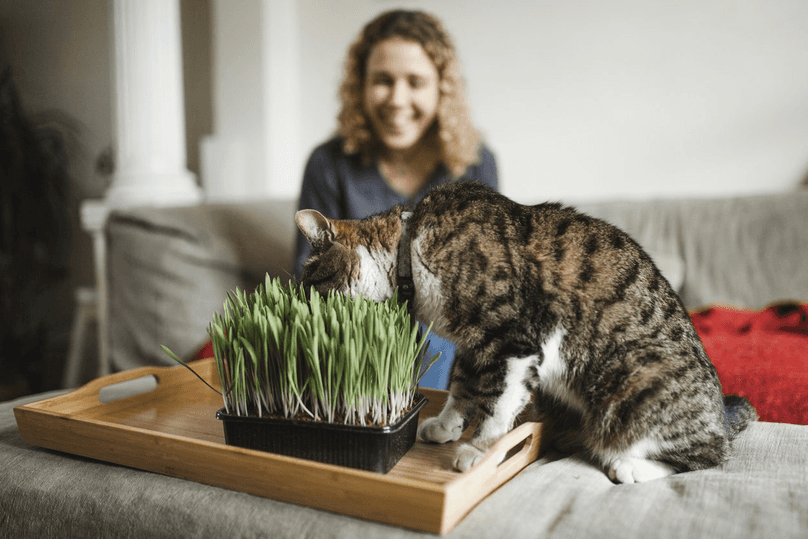
Grass Is Good For Cats
If you’re like many cat owners, you may have noticed your feline munching on grass blades in the yard. No, your pet is not going vegan—per se. But is it a cause for concern?
In the animal kingdom, cats are considered obligate carnivores —so their bodies require meat for survival. However, the feline diet is not restricted entirely to meat. While science is not certain exactly why cats eat grass, there are several prevailing theories.
Grass is a Digestive Aid.The feline digestive system lacks the enzymes to properly digest leafy greens (including grass), so when your pet eats grass, it may quickly vomit it back up, along with its most recent meal. For this reason, many people long believed that grass was toxic to cats. Science has shown that in small amounts, grass can actually assist feline digestion.
- Grass is an irritant that may induce emesis (vomiting). Emesis can clear unwanted matter (like hairballs and the small bones of prey) from the upper digestive tract.
- Because cats can’t digest grass, it often passes through the intestines. Substances in the grass act as a laxative and can help relieve constipation and remove waste from the intestinal wall.
Grass Has Nutritional Value.Grass is high in some nutrients that cats need. One of these is folic acid, which is found in high concentrations in feline milk. Folic acid is a B vitamin that helps regulate blood oxygen levels, assists in the manufacture of hemoglobin, and plays a vital role in cell-building, including the creation of DNA. If your pet is deficient in folic acid, it may seek out grass the way we might crave bananas when our bodies are low on potassium.
Grass Cleans Teeth.There’s some support for the idea that grass and the small bones of prey animals provide cats with a natural way to remove debris from between teeth, decreasing the chances for tooth decay and oral infections.
Some Cats Simply Like It.For cats that don’t often get access to the outdoors, a roll in the grass (and a nibble) may be a real treat. Remember that cats possess a powerful olfactory sense, so smells are very intense cues for them, which is why felines find some plants, like catnip, deeply enjoyable.
What Grasses Are Safe for Cats?
While most common grasses are safe for cats to eat, some common garden plants are toxic. Plants toxic to cats include: amaryllis, anything in the lily family, poinsettia, carnations, chives, most ivy, clematis, and geraniums.
Other Cautions.If your cat is a grass-lover, there are some steps you can take to ensure that your pet is safe.
- Plant a patch of grass dedicated to munching.
- Ensure your cat stays far from pesticide-treated areas.
- Keep your pet away from toxic plants both in the yard and the home.
Be Aware of Poisoning Signs.If your cat does experience a toxic exposure–whether from plants or another substance–it’s important to recognize the signs early. These may include:
- Persistent vomiting
- Loss of appetite
- Convulsions
- Lethargy
- Diarrhea
Any severe or persistent symptoms should be reported to your vet immediately.
Editor’s Note:The Pet Poison Hotline is available (for a fee) to assist if you suspect your pet has been poisoned.